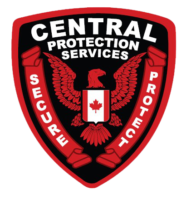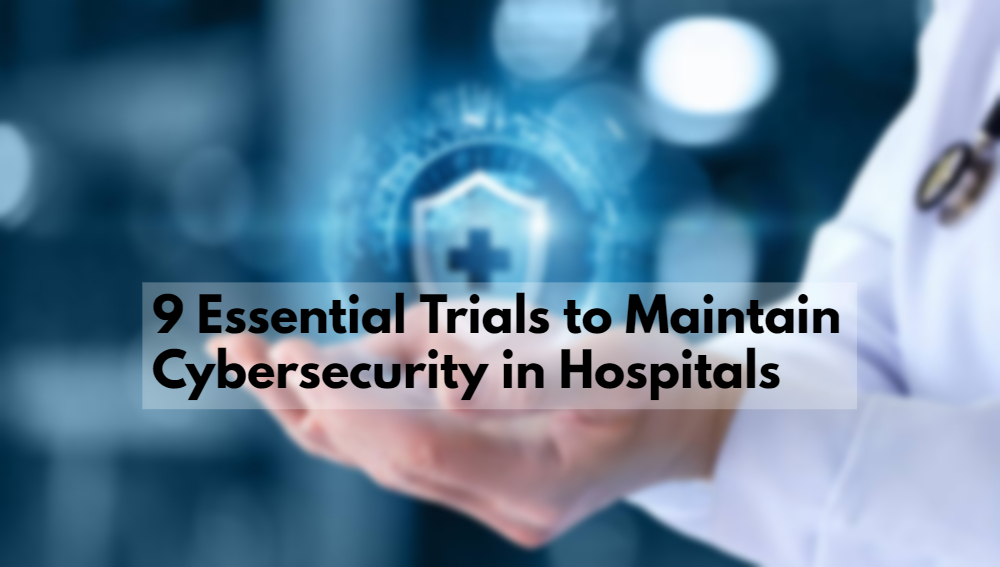With the world being entered into a digital era, cybersecurity in hospitals has become an essential aspect of any organization’s security measures, and hospitals are no exception. Data breaches include the leakage of sensitive patient information, medical records, and confidential data transmitted digitally. Hospital security Toronto companies provide a range of services to healthcare organizations, including on-site security officers, access control systems, surveillance systems, and alarm response services. These companies work with healthcare providers to design customized security solutions that meet the specific needs of the hospital for cybersecurity.
What does Hospital Security do?
Hospital security work to prevent security breaches and react quickly to any incidents that occur. Some of the key tasks of hospital security include:
- Observing the hospital premises for any suspicious activity.
- Access control to the hospital facility by screening visitors and checking entrances and exits.
- Dealing with emergencies such as medical emergencies, fires, and security breaches.
- Lead mobile patrols to ensure that the facility is secure.
- Providing assistance to staff and visitors as needed.
- Management of conflicts and preventing violence from occurring.
- Defending patient data from cyber threats such as data breaches and ransomware attacks.
Importance of Hospital Security and Cybersecurity
Hospitals deal with an enormous amount of sensitive data, including personal and medical information of patients, financial information, insurance details, and other confidential data. Any unauthorized access or breach of information can lead to substantial harm to patients and the hospital’s reputation. Patient information can be misused, stolen, or sold on the dark web leading to identity theft, fraud, and even endangering the patient’s life. Hospital Security Services Edmonton plays a critical role in ensuring the well-being and security of the premises, staff, and patients. They monitor access points to the hospital and confirm that visitors and patients are not carrying guns or other illegal items.
Hospital security guards also ensure that hospital guidelines and procedures are being followed, and emergency situations are regulated quickly and efficiently. In addition to physical security trials, Cybersecurity in hospital is equally important to ensure that sensitive information is not conceded. Hospitals must take steps to defend their networks, systems, and data against cyber threats like phishing attacks, malware, and ransomware. Cybersecurity is crucial for hospitals to protect patient data, preserve compliance with regulations, and ensure continuity of operations.
Essential Cybersecurity Trails in Hospitals
Hospitals are responsible for storing and handling sensitive patient data, comprising medical records and financial information. Cybercriminals often target hospitals to get data access which can be used for insurance fraud, identity theft, and other criminal activities.
In this blog, we’ll discuss some essential trials that hospital management can take to maintain cybersecurity and protect their patient’s sensitive information.

- Conduct Consistent Security Audits
One of the most significant trials hospitals can take to maintain cybersecurity is to conduct systematic security audits. This involves a comprehensive assessment of all the hospital’s systems, including software, hardware, and networks. The objective of such audits is to detect potential vulnerabilities and address them before they can be broken by cybercriminals. During security audits, hospital staff should be competent in how identifying and responding to security threats. This includes phishing attacks, malware infections, and other types of cyber-attacks.
- Install Security Software
Another essential trial to maintain cybersecurity in hospitals is to install security software. This includes antivirus software, firewalls, and intrusion detection systems. These tools are designed to identify and prevent cyber-attacks by blocking unofficial access to Healthcare & Hospital Security and data.
It’s vital to ensure that all security software is up-to-date and properly organized to provide maximum protection against cyber threats.
- Implement Access Controls
Access controls involve limiting access to sensitive data and systems to authorized personnel only. To achieve this, you can use passwords, biometric authentication, and other security measures. Furthermore, it is important to implement a strong password policy that requires users to create complex passwords and change them regularly. Biometric authentication, such as fingerprint scanning or facial recognition, can also provide an additional layer of security.
- Encrypt Data
Encryption is a process of altering sensitive data into an unreadable format in order to protect it from unauthorized access. Hospitals should encrypt all sensitive data, including medical records and financial information, to prevent cybercriminals from accessing it. You should employ encryption for data both in transit and at rest. Data at rest refers to data stored on devices such as hard drives or USB drives.
- Backup Data
Hospitals should implement a regular data backup strategy to protect against data loss due to cyber-attacks or system failures. This includes creating regular backups of all sensitive data and storing it steadily in a separate location. This ensures that hospitals can quickly recover from a cyber-attack or system failure without losing essential data. It’s important to test backup systems regularly to guarantee that they are working properly and to identify any potential matters before they can cause problems.
- Implement Network Segmentation
Network segmentation is the repetition of dividing a network into smaller segments. This practice supports limiting the impact of a cyber-attack by inhibiting it from spreading to other parts of the network.
- Train Employees
Hospitals should train their employees on cybersecurity best practices to ensure they are aware of potential threats and know how to respond to them. Specifically, this training should include how to identify phishing emails, create strong passwords, and recognize suspicious activity. Additionally, it is important to regularly update this training to address emerging threats.

Hire a Professional Hospital Security Company
Hospitals should consider hiring a professional security company to help maintain cybersecurity. A security company can provide 24/7 monitoring and response to potential threats. They can also offer regular security assessments and training to hospital staff.
Hospitals and healthcare facilities require dedicated security services that go beyond what a regular Security Guard Company Edmonton can provide. A professional hospital security company has the experience, knowledge, and resources to provide comprehensive security services that meet the unique needs of healthcare organizations. Some of the benefits of hiring a professional hospital security company include:
- A professional hospital security company has specialized training and expertise in providing security services for healthcare facilities. They comprehend the unique security challenges that hospitals face and can provide customized solutions to address them.
- A professional hospital security company has access to advanced security technology, including surveillance systems, access control systems
Understand the Duties of Hospital Security Officers
Hospital security officers are responsible for protecting both physical and digital assets, preventing theft and vandalism, and monitoring the hospital’s surveillance systems as well as understanding the potential coercions to the hospital’s infrastructure. Hospital security officers have a wide range of duties and responsibilities to ensure that the hospital premises and patients are safe and secure. Some of the primary duties of a security officer in the hospital include:
- Security officers ensure that the hospital premises are secure. They monitor access to the hospital and impose hospital policies and procedures for responding to emergencies and security incidents.
- Security officers patrol the hospital premises regularly to identify potential security threats and risks. They report any suspicious activities or incidents to the hospital management and take appropriate action to mitigate risks.
- Security officers manage access control systems, including issuing and revoking access cards, monitoring access points, and ensuring that only authorized personnel have access to restricted areas.
- Security officers are trained to respond to emergency situations such as fires, floods, and medical emergencies. They work with hospital staff and emergency services to ensure that patients are safe and receive the necessary medical attention.
Central Protection Services investigate incidents of theft, vandalism, and other security breaches. First, they gather evidence, then interview witnesses, and finally provide reports to the hospital management and law enforcement agencies.






